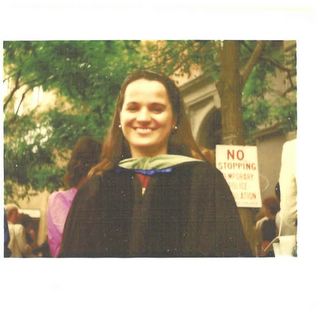As to making Christian films, we can learn much from nonbelievers
WHY DO HEATHENS MAKE THE BEST CHRISTIAN FILMS?Most films that successfully incorporate Christian themes are made by non-Christians. Thom Parham explains why in this essay from the new book, 'Behind the Screen: Hollywood Insiders on Faith, Film, and Culture.'
By Thom Parham
[Editor's Note: To read GodSpy's interview with Barbara Nicolosi, co-editor of Behind the Screen, click here.]
Places in the Heart is a film about Edna Spalding (Sally Field), a young woman who tries to save her farm from foreclosure after her husband dies. During the course of the film, Edna assembles a surrogate family around her, consisting of Moze, a black sharecropper (Danny Glover); Mr. Will, a blind boarder (John Malkovich); and her precocious children, Frank and Possum (Yankon Hatten and Gennie James). Near the end of the movie, the Klu Klux Klan runs Moze out of town. In the final scene, the townspeople gather at church, where a stirring rendition of "Blessed Assurance" is followed by a reading of 1 Corinthians 13:1-8:
Though I speak with the tongues of men and of angels and have not love, I am become as a sounding brass or a tinkling cymbal. And though I have the gift of prophecy and all knowledge but have not love, I am nothing. And though I bestow all my goods to feed the poor and have not love, it profit me nothing. Love is patient, kind. Love is not jealous or boastful. Love never ends.
The choir then sings "I Come to the Garden Alone" as the communion elements are passed. Philandering husband (Ed Harris) is the first to partake, followed by his forgiving wife (Lindsay Crouse) and their daughter. The camera pans across various congregants, including an evil banker (Lane Smith) who tried to foreclose on Edna's farm, and band members from a previous night's shindig. Then, oddly, the camera continues to pan, revealing a couple who died trying to escape from a tornado, some of the Klansmen, and Moze. Panning past Mr. Will, Possum, Frank, and Edna, the camera finally rests on Edna's late husband, Royce (Ray Baker), and Wylie (DeVoreaux White), the black youth who accidentally shot him and was in turn lynched.
At this point, we realize there's much more going on in Places in the Heart than what's on the surface. The film is a metaphor for the kingdom of God, and the final scene tells us that God's grace is available to all who accept it—white or black, young or old, good or evil, living or dead.
Secular filmmakers tend to observe life more objectively than Christians. They see the world the way it really is, warts and all.
Writer/director Robert Benton is not an evangelical Christian. Yet, his film incorporates "Christian themes" with more subtlety, artistry, and depth than the majority of films being made by professed Christians. It is not the only one. In fact, most films that successfully incorporate religious themes are made by nonreligious people.
Here are some of the better films with Christian messages or themes from the past few decades:
Chariots of Fire (1981)
Tender Mercies (1983)
Places in the Heart (1984)
Hoosiers (1986)
The Mission (1986)
Grand Canyon (1992)
The Shawshank Redemption (1994)
Dead Man Walking (1996)
The Apostle (1998)
The Prince of Egypt (1998)
The Iron Giant (1999)
Magnolia (2000)
Signs (2002)
Jonah: A Veggie Tales Movie (2002)
About Schmidt (2002)
Changing Lanes (2002)
In America (2002)
Bruce Almighty (2003)
The Lord of the Rings trilogy (2001-2003)
The Passion of the Christ (2004)
All of these films were critically acclaimed and/or box office hits. But with the exception of Jonah, Bruce Almighty, and The Passion, none were made by Christian filmmakers. Christians, however, did make these films:
Gospa (1995)
Entertaining Angels (1996)
The Omega Code (1999)
The Joyriders (1999)
Left Behind.. The Movie (2000)
Carman: The Champion (2001)
Megiddo: The Omega Code 2 (2001)
Mercy Streets (2001)
To End All Wars (2001)
Hometown Legend (2002)
Joshua (2002)
Left Behind II:' Tribulation Force (2002)
Luther (2003)
Finding Home (2003)
Therese (2004)
'If you want to send a message, try Western Union,' said Frank Capra, a Christian who made hugely popular mainstream films.
Overall, these films are unwatchable. There are only a handful of good scenes among them. None had success with critics or at the box office. (What does it say about Christian filmmakers that one of their best-received movies features computer-generated vegetables who sing and dance?)
If Christians want to make successful films that incorporate their worldview, why not learn from those who are already doing it-non-Christians. So let's ask: why are the best Christian films being made by secular filmmakers?
more...

